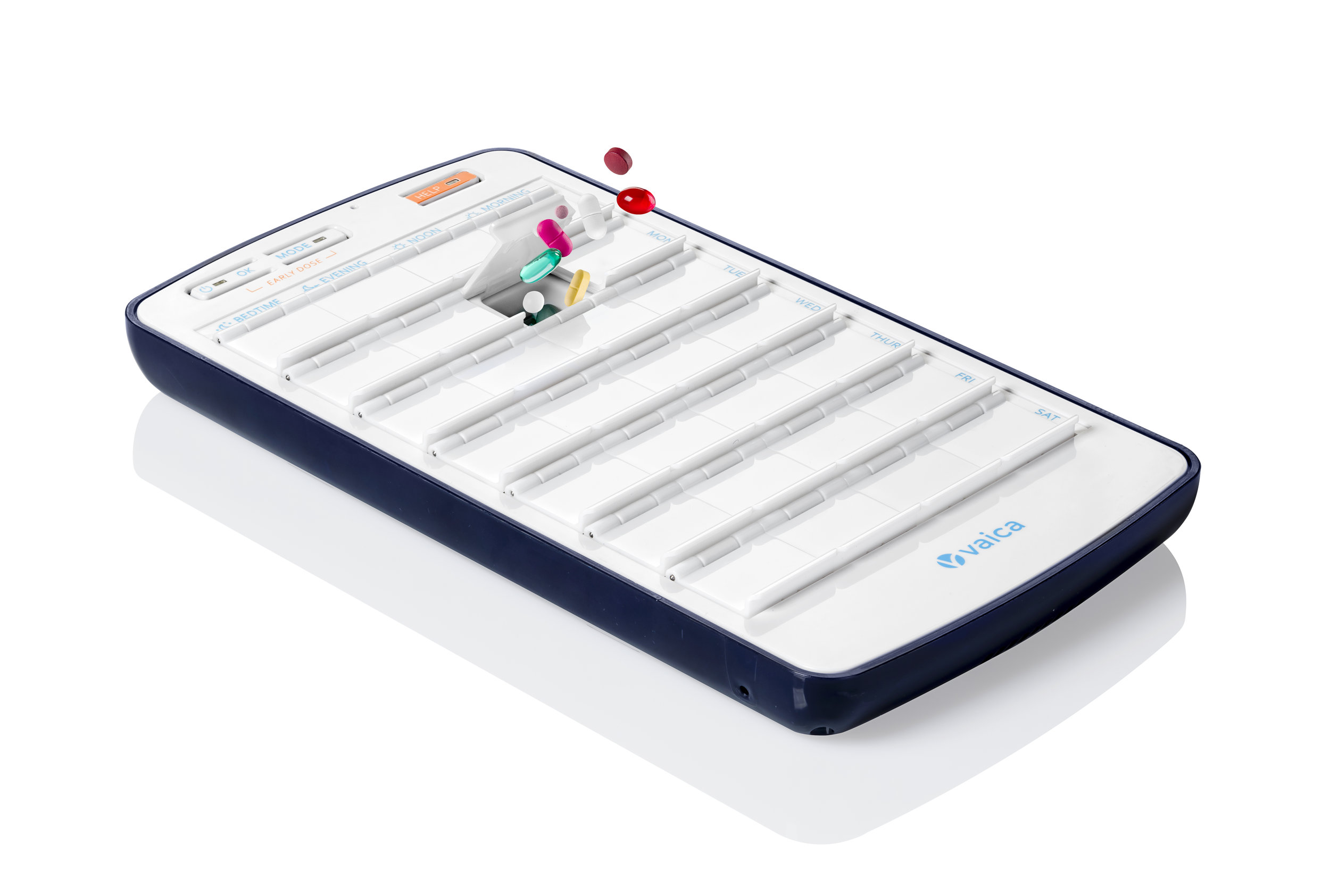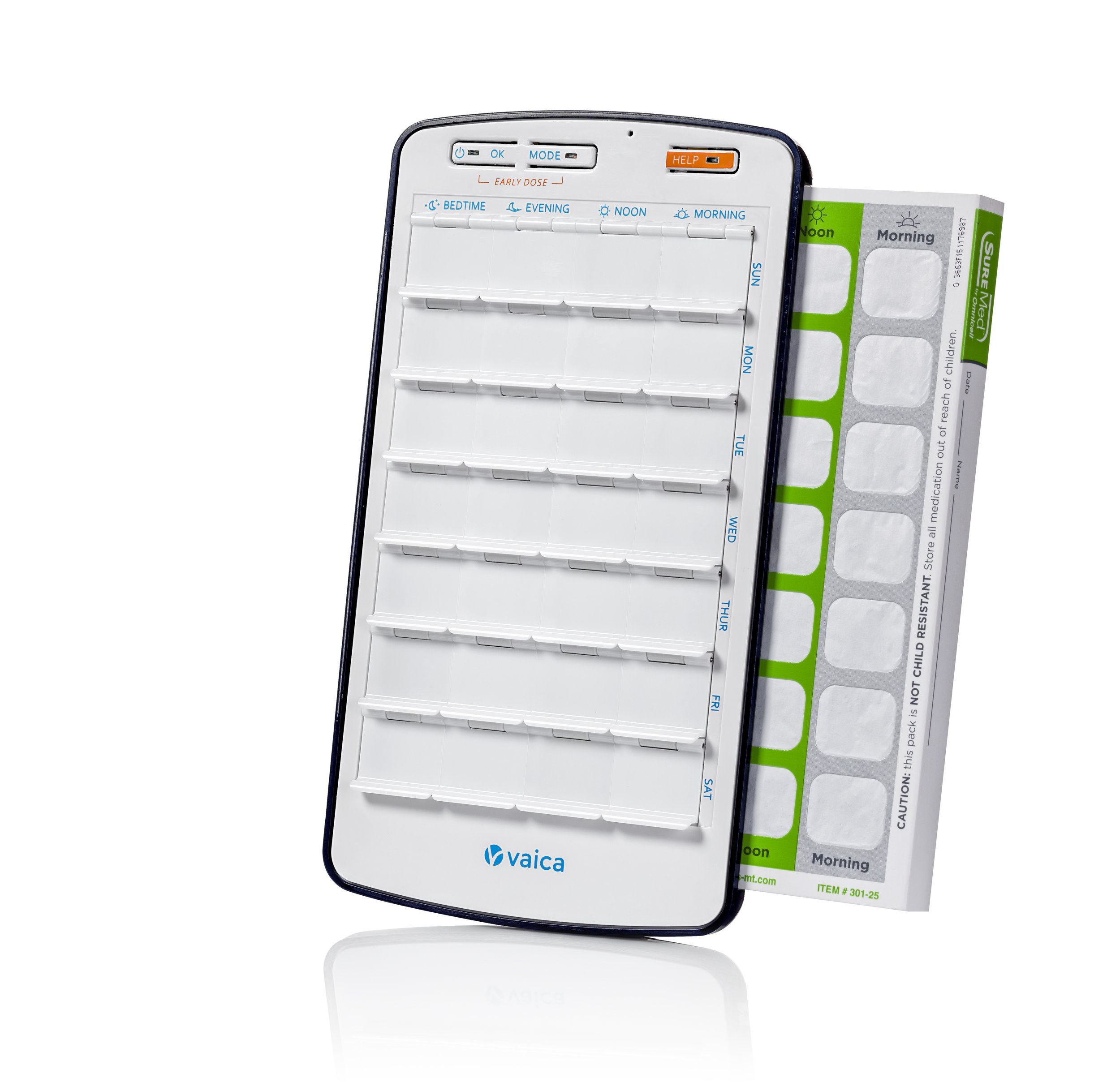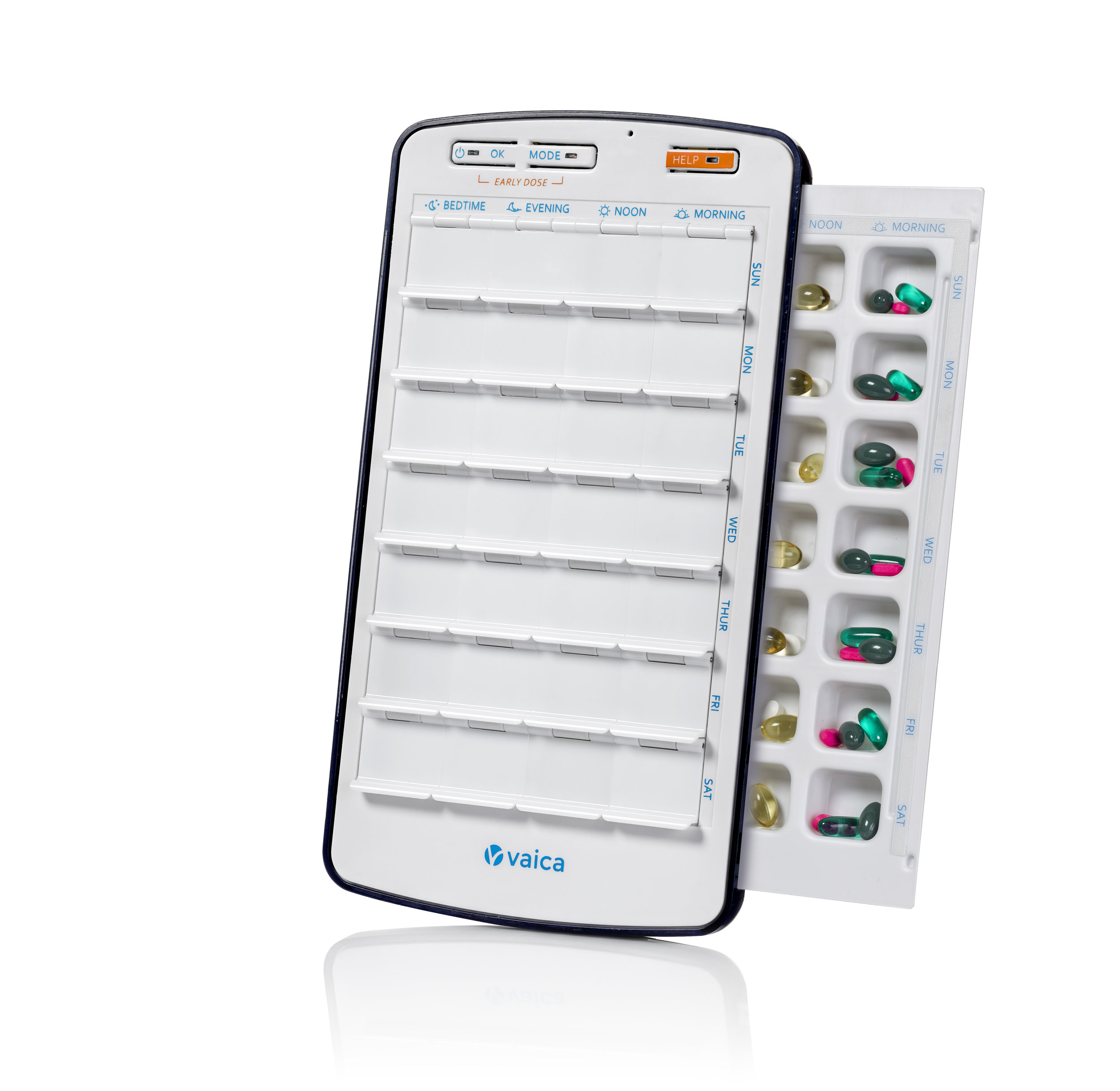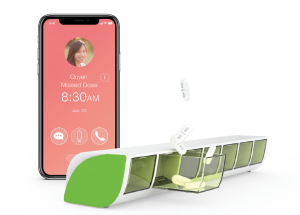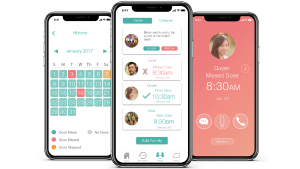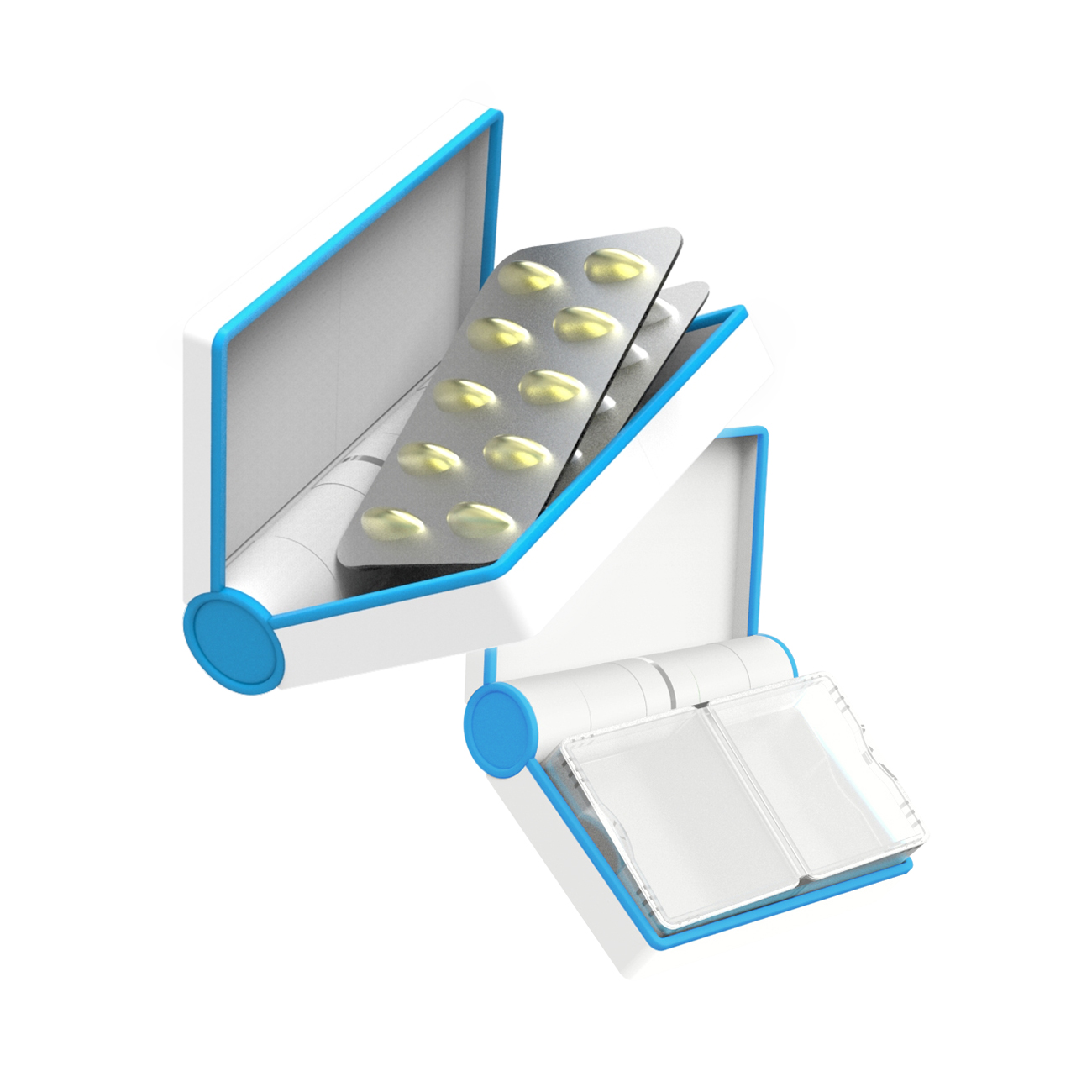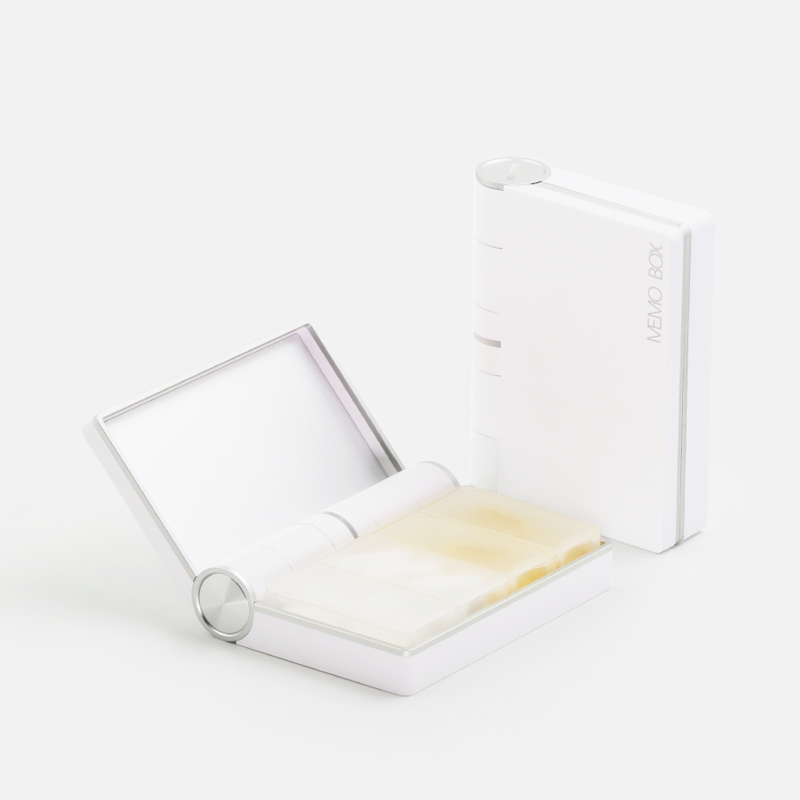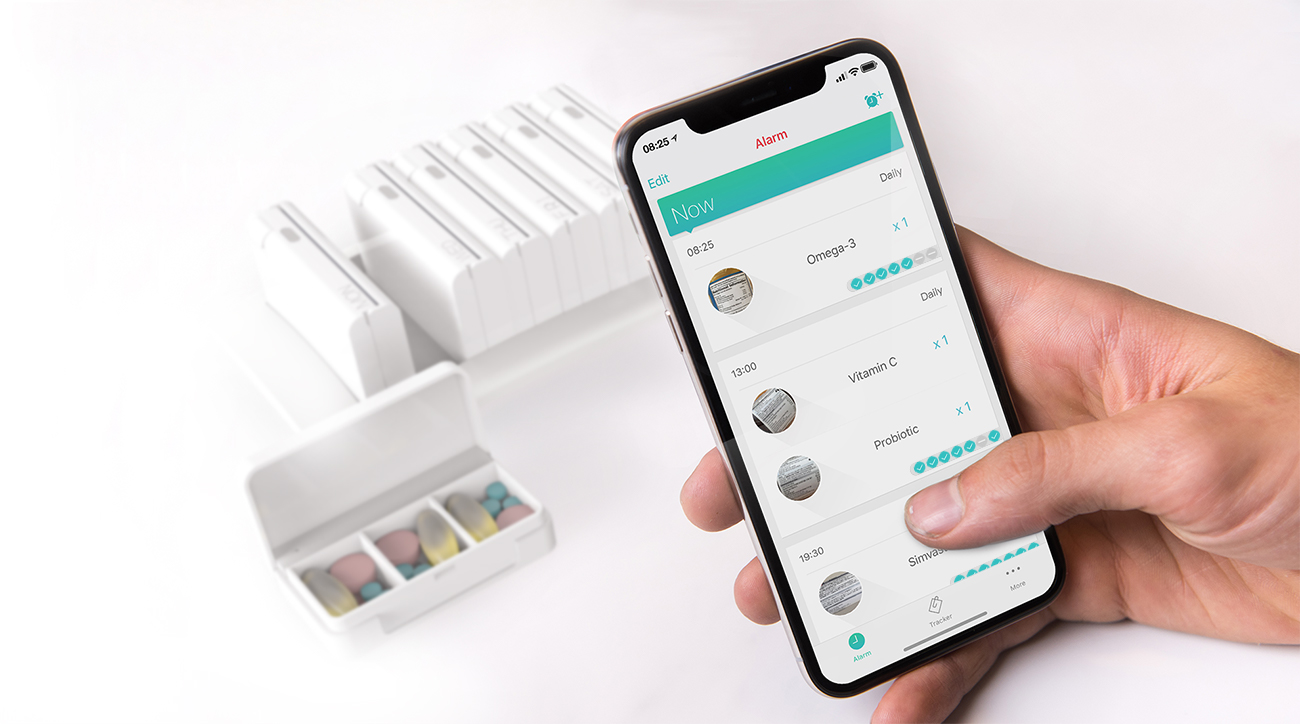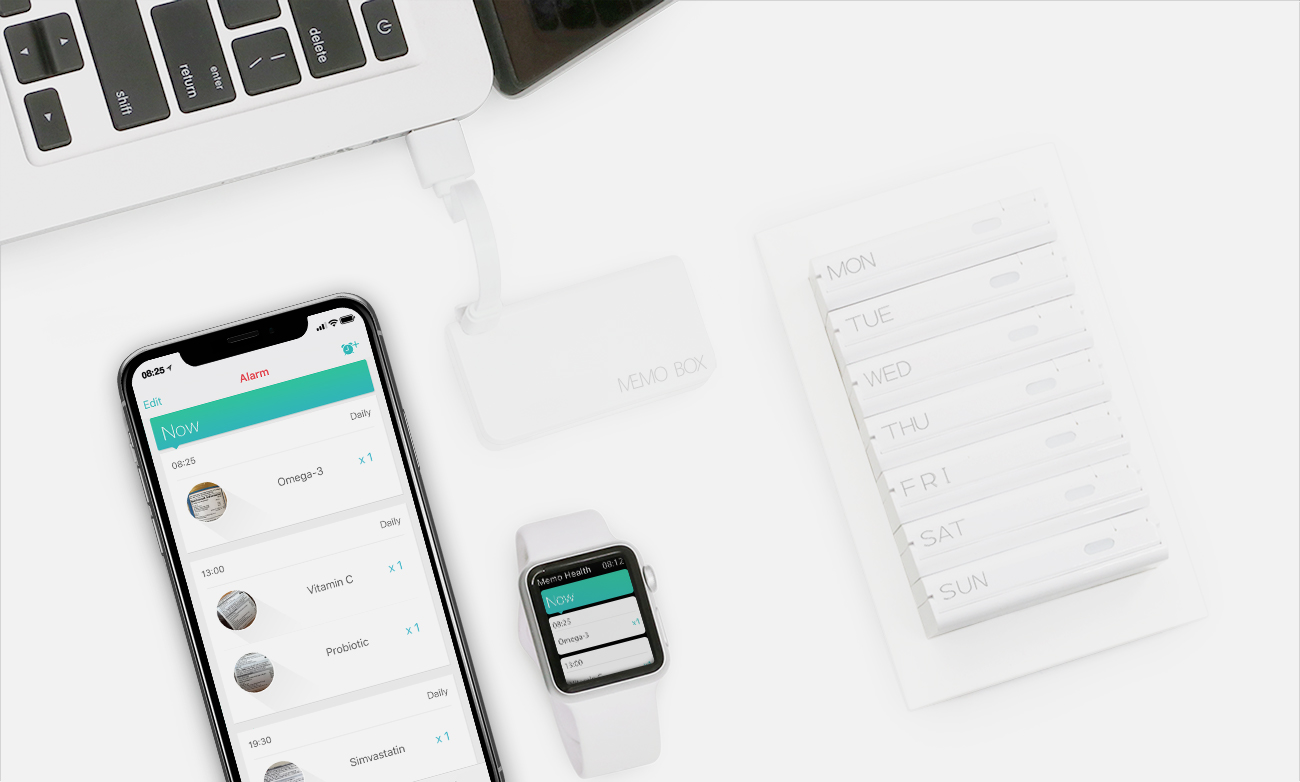Smart Pill Organizers
These companies are similar to smart pill bottles but instead of focusing on a singular medication, they organize all the patients medications on one system, and have some form of technological connection to alert and track adherence. This could include companies that have designed a smart pill box to smart automatic pill dispensers. Comparably, these devices may be more beneficial for patients with multiple medications (e.g., cost of buying multiple smart caps vs one device) or complicated medication regimens. However, many of these may require a higher cost for initial acquisition, require medications filled at a pharmacy (instead of pouring them directly into a smart pill bottle yourself), and a subscription service. Focus appears to be on B2C (Buyer to Consumer) model rather than B2B (with a focus on research) at this time by a majority of these companies. Interestingly, we are seeing a number of these companies also add the ability to incorporate drugs that are packaged into blister or strip packaging as well at this time.
TowerView Health
TowerView has an interesting system whereby a personal assistant at the company will coordinate the set-up with your providers, pharmacy, and insurance company. They will then deliver your medications in a smart pillbox. When it is time to take your dose, the pill box will chime and flash alerts, along with sending out SMS and phone reminders as needed. Patients have the option of buying the device ($399.00) or enrolling in a subscription service ($39.99/month). The difference being the subscription service also includes medication delivery and pre-sorted/packaged medications to insert into the device rather than the patient doing it themselves.
Research
No noted publications.
Studies are listed on ClinicalTrials.gov
MedMinder
MedMinder produces several different smart pill boxes that have different features depending on the situation. The ‘Maya’ version is unlocked, and can be accessed at any time, but the ‘Jon’ version is locked and only available for patients to open depending on the directions. Each can also be paired with medical alert features that can be worn by the patient. Both can be filled by a patient or have a pre-filled option from their own pharmacy that will package the medications in a blister pack. The devices are sold as a subscription service that charges per month to be used by a patient.
Research
Vaica
Vaica produces several different smart pill boxes and packages depending on the user. The most patient specific version is SimpleMed+ which is a weekly pill box (28 compartments at 7 days and 4 times a day dosing) that can be filled manually or have a blister pack inserted into it. The doors light up when the next dose is due and audible alerts will occur as well. All of this data is captured and then recorded via a cloud portal for clinician access and review. Patients can also sync data with the companies app, Medy. Interestingly, Vaica also manufacturers other smart medication devices focused on patient assistant tools, for clinical research, and even a smart ‘liquid medication’ tray capable of holding up to 10ml per compartment (Biodose Connect) - which I have never seen before tackled by any company.
Research
Several trials are listed on ClinicalTrials.gov
Vaica keeps a listing of press reports detailing some of their research, but Google Scholar also has a few publications listed.
MedSentry
MedSentry platform includes operations involving the patients medications being filled in a partner pharmacy into specialized containers that are then delivered to the patient. Little public information is available, but it appears that they use their own proprietary blister packaging to sort a patients medication. These then are stored in a smart dispenser that alerts patients when to take their medication. The patient then pulls a lever and the medication is then dispensed in a dose cup for them to take. Another option is to use an app to scan the dose cap to determine they took their medication, and these two options are interchangeable depending on the dexterity the patient possesses. All data is then uploaded to an online platform for caregivers to monitor.
Research
Only one publication in heart failure was conducted and published.
PillDrill
A B2C company that sells a smart medication organizer for patients for $279.00. The system is rather unique, in that it uses a wirelessly connected hub (which will light up and send audible alerts when doses are due) in the home that patients then scan their medication cup (that the patient pre-fills on their own) to signify they are taking the correct dose. The cups are arranged in rows of 7, and there can be as many rows as the patient desires (e.g., BID vs TID vs QID dosing schemes). This also makes it easy to transport the medications for travel. Additionally, stickers/tags can also be placed on other medications that would not fit into a cup (e.g., injectables, inhalers, topical medications), which can also be scanned to track adherence patterns. Lastly, patients also have access to a 6 sided cube to track their mood. This data can then be shared through an online access point for others to access. Patients also have access to a mobile app and will receive weekly report cards on their adherence.
Research
No publications or studies identified using the PillDrill system.
CuePath Innovation
Currently not much information is available about the CuePath platform, but in essence a sensor is applied by the pharmacy to the patients medication compliance packaging (e.g., blister packs), which will detect when the patient removes a dose. The sensor will create alarms to remind the patient to take their next dose. Other alerts can be sent to patient providers or caretakers as well. Data is then recorded in realtime for review.
Research
No publications or studies identified using the CuePath system.
Hero Health
Currently their website is updating and little information is available. But based on past media it appears that it is a smart pill dispenser that can be pre-loaded with medications and then will send alerts when to take the medication dispensed. It syncs with an app, that will keep records and let you know when you need a refill. Currently unknown if medications are loaded by a patient or from a pharmacy.
Research
No publications or studies identified using the Hero system.
Karie Health
Strip packaging smart dispenser that syncs with a mobile app. The compliance packaging is prepared by a pharmacy and sent to the patient to be loaded into the device. When doses are due it will send alerts directly through the device and synced mobile app. Adherence reports are collated and can be shared. Currently it seems the pharmacy has to prepare the cartridge. The system is currently available in Canada, and the service cost $60/month.
Research
No publications or studies identified using the Karie Health system.
Livi
An automated smart pill dispenser that can hold up to 15 different medications. When a dose is due, it will light up and beep for a patient then to get their medication. The device supports up to 90 days supply - and based on the video has the patient fill each container which seems to be a 90dram vial in size. You can rent the device or buy for $1,999. Missed doses will send alerts to the patient through SMS and email, along to caregivers. All information is managed through a web based portal.
Research
No publications or studies identified using the Livi system.
Phillips Medido
I may end up removing this, but Phillips created the Medido, which was a smart home strip-packaging dispenser. Now, they have had some press with this system in the past few years (and their app is still available on iOS) and images circulate online, but recently they teamed up with Spencer Health Solutions (see smart home medication dispensers) and I have not heard anything lately, so this may be a pivot for development from Phillips. For more information see their white paper.
Research
No publications or studies identified using the Medido system outside their press release.
my-uBox
A rather different approach, as the uBox is a standalone smart pill box that doesn’t take any compliance packaging and doesn’t look like any traditional pill box on the market. Rather, it is round device which holds individual doses of medications inside and then dispensed when a dose is needed. A nice feature is that it can be locked so others cannot access the medications unintentionally. Data is synced with an app to keep track of adherence rates. Unknown if their business model is B2B or B2C, and how many doses of medications the device can hold.
Research
No publications or studies identified using the my-uBox system.
PillPresso
At this time, there is little information provided on the PillPresso, a Singapore based company. Based on the companies public information, it appears to be a ‘personal medication device’ that can sort a patients medications, [assumed to] dipsense the medication to the patient and track their adherence via an online portal. The best information I could pull about the system comes from a news article that details it as a home-based medication cabinet that sorts the medication and can allow for changes in therapy via the online platform based on the provider notice. It can sort both loose medications or those in compliance packaging or liquid form.
Research
No publications or studies identified using the PillPrresso system.
Tricella
A traditional smart pill box design with a unique flair, it wouldn’t be hard for most patients to recognize it for what it is. Each pill box has a pullout compartment that stores the medication (which looks to hold a decent amount of tablets/capsules). Based on their company website, each pill box is meant for one dose a day, and if you have multiple doses then you need multiple boxes. One box would run $74.99. The box has bluetooth connection, and data is uploaded via an app. Caregivers can be notified if a patient misses a dose and reach out to check-in. Currently at B2C model.
Research
No publications or studies identified using the Tricella system.
MediAlarm
Maybe you’ve seen it on Indiegogo, but the MediAlarm is a round pillbox that (unsuprisingly) holds a patients medications and sends out an alarm when a dose is due. The website states it is designed for patients who take medications up to three times a day (TID), but unsure how many medications it can hold at a time. Currently at B2C model.
Research
No publications or studies identified using the MediAlarm system.
Ellie
Another device that made its start on Indiegogo that raised over $160K for a portable smart pill container for a more modern look. I can understand this, as the device itself does not look like a traditional pill box, and for those that may be conscious of carrying a pill box this could be a more sleek look. Now, the box is a little different in how it works compared to other companies products, as a patient would dump an amount of pills or supplements into the tray (which has 7 compartments) and then when a dose is due the compartment would light up for the user to then remove. All data is synced to an app, which can program the box and keep data records of adherence. Currently at B2C model with each unit running $119.00.
Research
No publications or studies identified using the Ellie system.
TinyLogics
Ok, this is the final product I am going to mention that was hosted on crowdfunding websites (at least in this section…). Tinylogics has an interesting history, starting off creating individual smart pill containers for on the go use, called a Memo Box. However, they have expanded, and now each Memo Box can be stored in a case and can be used for each day of the week. All the Memo Boxes sync with an app to provide alerts and track adherence. The app can also serve as a pillbox locator if you lose it. The company currently operates on a B2C model, and sells multiple versions of its Memo Box, including mini to deluxe versions.
Research
No publications or studies identified using the TinyLogics system.



